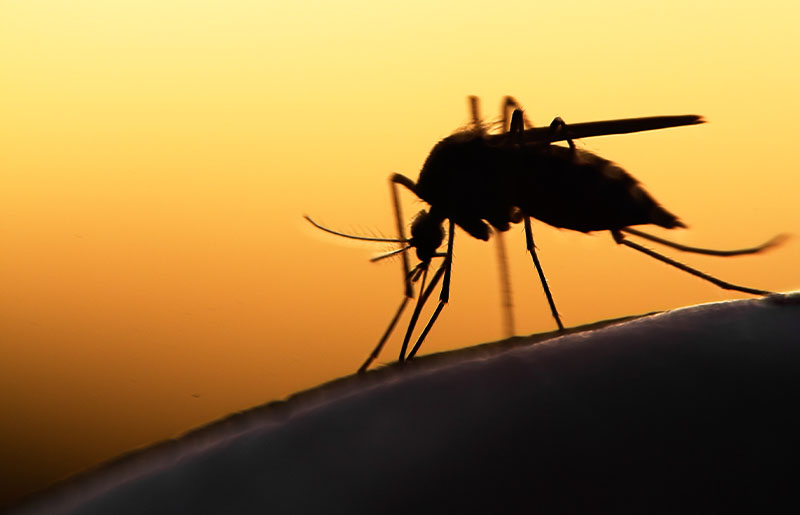
First West Nile Virus Mosquito of 2025 Confirmed in Fort Bend County: Health Officials Launch Spray Response
The first confirmed West Nile Virus (WNV) mosquito sample of the year has been detected in Fort Bend County, marking the beginning of heightened mosquito surveillance and targeted spray operations by county health officials.
Fort Bend County Health and Human Services (FBCHHS) Environmental Health Division announced that the positive mosquito sample was collected from a trap site within the 77494 zip code, an area that includes parts of Katy and Fulshear. While no human cases of WNV have been reported to date, officials have activated a proactive response protocol that includes evening adulticide spray operations starting July 9 at dusk, weather permitting.
“We remind our residents to enjoy the outdoors but remember to protect themselves and their families from diseases transmitted by mosquitoes,” said Dr. Gale-Lowe, FBCHHS Director and Local Health Authority. “After the recent rains and warmer first months of the year, we are seeing an increase in mosquito populations.”
Fort Bend County’s West Nile Virus Response Protocol
As part of its Integrated Mosquito Management (IMM) strategy, FBCHHS has initiated a three-day truck-based adulticide spray operation targeting the area where the WNV-positive mosquito pool was found. Surveillance will continue in the area until there are no additional confirmed positive samples.
The county's IMM approach is scientifically grounded and focused on reducing mosquito vector populations through environmentally responsible practices. This includes year-round trapping and testing of mosquitoes at over 90 surveillance sites, larvicide applications to standing water, and educational outreach to residents.
When adulticide applications are warranted, Fort Bend County uses EPA-approved products like Fyfanon ULV and Evergreen Ground 5-25, which are applied using Ultra Low Volume (ULV) systems during nighttime hours when pollinators and people are less active.
Mobile Sidebar Ad
Understanding West Nile Virus Risk
Although the vast majority—approximately 80%—of individuals infected with WNV do not experience symptoms, about 20% may develop flu-like symptoms including fever, fatigue, and headaches. Less than 1% of cases can develop into severe West Nile neuroinvasive disease, which may lead to disorientation, tremors, paralysis, or even death, particularly in older adults and immunocompromised individuals.
The primary vector for WNV in Fort Bend County is the southern house mosquito, Culex quinquefasciatus, which breeds in standing water. Officials emphasize that controlling mosquito populations starts at home.
Fight the Bite: Follow the 4-Ds of Mosquito Safety
Fort Bend County urges residents to stay vigilant, especially between June and October when mosquito activity peaks. The county recommends following the 4-Ds of mosquito safety:
- Dusk & Dawn – Avoid outdoor activity when mosquitoes are most active.
- Drain – Eliminate standing water from flower pots, gutters, and pet dishes.
- Dress – Wear long sleeves and pants when outside.
- Defend – Use EPA-approved insect repellents for protection.
Residents can use the EPA’s insect repellent search tool to find products based on protection time, active ingredients, or specific needs.
Special Considerations for Beekeepers and Pet Owners
To minimize harm to pollinators, FBCHHS applies adulticides at night and uses ULV systems designed to reduce bee exposure. Beekeepers can request a no-spray designation for their hives by emailing EH-MosquitoControl@fbctx.gov with the subject line “Do Not Spray – Bees.”
Similarly, residents who do not wish to have their property treated for other reasons may request exclusion via the same email with the subject line “Do Not Spray – Other.”
While pets such as cats and dogs rarely get sick from WNV, horses are highly susceptible and should be vaccinated. Birds, especially pet birds, should be kept indoors during dawn and dusk.
Mobile Sidebar Ad
Mosquito Control Resources and Community Involvement
FBCHHS encourages residents to report mosquito activity using this survey tool. The county also offers public education programs upon request and provides extensive mosquito control resources at here.
For residents wondering why spray trucks are less visible, the county notes that modern ULV equipment is quieter and produces a less visible spray cloud than older foggers. Treatments are typically conducted between 9 p.m. and 4 a.m., during peak mosquito activity.
Stay Informed and Protected
As West Nile Virus season begins, Fort Bend County officials remain committed to reducing public health risks through surveillance, science-based mosquito control, and community education.
For more information on mosquito prevention, vector-borne diseases, and county spraying operations, residents can visit:
Stay connected with My Neighborhood News for updates on health alerts and community safety efforts throughout Fort Bend County.
 Tiffany Krenek has been on the My Neighborhood News team since August 2021. She is passionate about curating and sharing content that enriches the lives of our readers in a personal, meaningful way. A loving mother and wife, Tiffany and her family live in the West Houston/Cypress region.
Tiffany Krenek has been on the My Neighborhood News team since August 2021. She is passionate about curating and sharing content that enriches the lives of our readers in a personal, meaningful way. A loving mother and wife, Tiffany and her family live in the West Houston/Cypress region.

